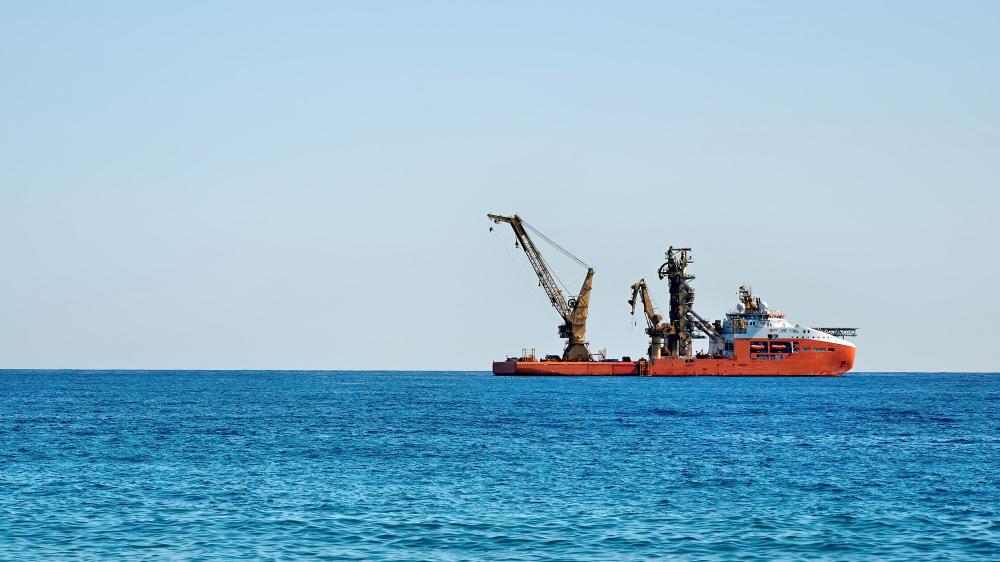Maritime workers are vital to the economy, often in difficult and dangerous environments. You may wonder how to seek compensation if you’ve been injured while working at sea or on navigable waterways.
The Jones Act, a federal law, protects maritime workers injured due to employer negligence. Understanding your rights under the Jones Act can help you pursue a claim and secure the compensation necessary to recover.
Unlike workers’ compensation, the Jones Act requires a demonstration of negligence to recover damages. Understanding the steps involved in filing a claim and gathering evidence is important.
Claims under the Jones Act often include compensation for medical bills, lost wages, pain and suffering, and future earning capacity.
A dedicated Ft Lauderdale Jones Act Lawyer understands the complexities of maritime law and can help protect your rights under this statute.

Why Choose Englander Peebles for Your Jones Act Case
Englander Peebles stands out in Jones Act claims for several reasons. Here’s what makes their assistance invaluable in these cases:
Personalized legal strategies
Every case has unique circumstances. Englander Peebles takes the time to assess your situation carefully and builds a plan customized to meet your needs.
Deep understanding of maritime law
Maritime laws, including the Jones Act, require a thorough grasp of specific rules and regulations. Englander Peebles leverages its strong knowledge of these laws to handle your case efficiently.
Clear and consistent communication
Keeping clients informed is a priority. Englander Peebles ensures you are updated throughout the claims process, addresses your concerns, and responds to any questions.
Record of successful outcomes
Securing fair compensation is a priority. Englander Peebles has handled numerous maritime cases and works tirelessly to achieve favorable results for injured workers.
Client-first approach
Every injured seaman’s recovery is essential. The team at Englander Peebles focuses on your best interests, offering compassionate and professional support as you pursue fair compensation.
What Is the Jones Act?
The Jones Act, officially known as the Merchant Marine Act of 1920, protects maritime workers injured. It allows seamen to seek compensation for injuries caused by their employer’s negligence or unseaworthy vessel conditions.
Unlike other workers’ compensation laws, which do not require proof of fault, the Jones Act requires that negligence caused the injury.
The Jones Act covers individuals who spend significant time working on a vessel in navigable waters. Examples of covered workers include crew members, deckhands, engineers, and captains.
The vessels include cargo ships, fishing boats, tugs, barges, and oil rigs.
Successful Jones Act claims can secure damages for the following:
- Medical expenses
- Lost wages
- Diminished earning potential
- Pain and suffering
- Costs tied to ongoing treatment and care
The History and Evolution of the Jones Act
The Jones Act dates back to the early 20th century when the United States sought to strengthen its shipping industry and ensure protections for maritime workers.
Congress passed the Merchant Marine Act of 1920, and Section 27 of that law became what we know today as the Jones Act.
This legislation addressed several critical areas, including worker safety, vessel operation standards, and support for a robust American merchant fleet.
The Jones Act emerged during World War I when the nation recognized the need for a self-reliant maritime industry. Shipping proved essential during wartime, and dependence on foreign vessels put economic and national security at risk.
The Act required all goods transported between U.S. ports to travel on ships built, owned, and operated by Americans, boosting domestic shipbuilding and crew employment. Beyond supporting the industry, the law also offered lifelines to injured maritime workers.
One of the Jones Act’s defining features is its seamen protection. It allowed injured workers to seek compensation from their employers when negligence caused an accident.
This was a departure from broader workers’ compensation laws, which typically do not require proof of fault. Seamen considered an essential but often vulnerable group of laborers, gained a pathway to recover damages for medical bills, lost wages, and pain caused by unsafe conditions aboard vessels.
Over the years, the Jones Act has changed to address new challenges and clarify its provisions. Legal cases have played significant parts in shaping how the Act applies. For instance, the Supreme Court made decisions that defined who qualifies as a seaman under the Act.
Courts decided that workers must spend substantial time on a vessel in navigable waters and perform duties contributing to the vessel’s mission.
Amendments have further refined how employers support injured workers. Maintenance and cure benefits, which require employers to cover living expenses and medical care until workers recover, have strengthened over time. The concept of unseaworthiness, which holds vessel owners responsible for unsafe conditions, remains closely linked to Jones Act claims.
Critics have occasionally challenged the Act’s restrictions on foreign-built ships, arguing that it increases shipping costs. However, supporters emphasize the importance of maintaining domestic shipping capabilities for defense and economic stability.
The Jones Act continues to address modern challenges while staying true to its foundational goals. Its history highlights the balance between protecting maritime workers and strengthening an industry pivotal to the nation’s economy and security.
Understanding this evolution emphasizes this law’s important protection to those facing sea hazards.
Proving Negligence Under the Jones Act
To file a successful claim under the Jones Act, injured maritime workers must show that their employer’s negligence contributed to their injury. This doesn’t mean the employer must be totally at fault; showing some negligence, however small, is enough under the law.
Common examples of employer negligence
- Failing to provide adequate training
- Ignoring safety standards
- Poor vessel maintenance
- Unsafe working conditions
- Failure to equip vessels with proper safety equipment
If unseaworthiness contributed to your injury, compensation may also be pursued. Unseaworthiness occurs when a vessel or its equipment is not reasonably fit for its intended purpose, posing risks to workers’ safety.
Evidence Needed to Prove a Jones Act Claim
Gathering evidence is a crucial step in securing compensation. Examples of valuable evidence include:
- Witness statements from crew members or others who were present
- Maintenance and inspection records for the vessel
- Photographs of the accident site and conditions
- Medical reports documenting the nature and severity of the injury
- Employment records and crew logs
Filing a Jones Act Claim in Ft Lauderdale

Filing a claim under the Jones Act requires following specific legal steps. Acting quickly ensures you meet deadlines and preserve key evidence. Here’s what to know about the process:
- Report your injury immediately
Inform your employer as soon as the injury occurs. Failing to report promptly may jeopardize your ability to file a valid claim. Ask for a copy of the report for your records.
- Seek medical attention
Your health should be a top priority. Consult a maritime medical professional who understands the types of injuries common in this field. Be sure to follow all treatment recommendations.
- Preserve evidence
Collect and document evidence of employer negligence or unsafe conditions. Photograph hazards, collect witness statements, and keep copies of relevant documents.
- File your claim promptly
The statute of limitations for Jones Act cases is three years. Starting the process early allows more time to secure evidence and build a strong claim.
- Consider legal representation
Due to the complexities of Jones Act cases, many injured workers find it helpful to seek legal advice. A Ft Lauderdale Jones Act Lawyer ensures paperwork is filed correctly, evidence is submitted on time, and settlement offers are carefully reviewed.
Common Jones Act Injuries
The risks maritime workers face vary widely, but certain injuries frequently appear in Jones Act claims. These include:
- Head injuries, including traumatic brain injuries (TBIs)
- Back and spinal cord injuries
- Fractures and broken bones
- Burns and chemical exposure injuries
- Hypothermia from prolonged exposure to water
- Amputations due to unsafe equipment
Even injuries that appear minor initially can worsen over time. Seeking medical attention promptly and following up on care ensures you address any lasting damage caused by the incident.
Maintenance and Cure Under Maritime Law
Beyond the Jones Act, maritime law also provides injured seamen with the right to maintenance and cure. Maintenance refers to daily living expenses, such as housing and meals, while cure covers medical costs tied to the injury.
These are owed regardless of fault and provide injured workers with the financial support needed during recovery.
Maintenance payments typically reflect the cost of basic living needs. Cure continues until you reach maximum medical improvement (MMI)—the point when further treatment will no longer improve your condition.
Employers must pay maintenance and cure promptly. Injured workers can pursue additional legal action for punitive damages if they fail to do so.
How Fault Impacts Compensation
The Jones Act incorporates the concept of comparative negligence. If an injured worker’s actions partly caused the incident, their compensation may be reduced. However, they are still entitled to recover damages if their employer’s negligence contributed to the injury. For example, if a worker is found 20% at fault, their compensation may be reduced by 20%.
Defense attorneys and insurance companies may attempt to shift blame to reduce liability. Collecting thorough evidence and working with a legal advocate makes your story heard.
Additional protections for maritime workers
Florida’s busy coastline is home to many maritime workers from Ft Lauderdale to other ports. Beyond the Jones Act, other protections extend to injured maritime professionals:
Longshore and harbor workers’ compensation act (LHWCA)
The LHWCA offers coverage for maritime employees who work on docks, piers, and terminals rather than onboard vessels. This includes longshoremen, shipyard workers, and other port-based employees injured in the course of their duties.
Death on the High Seas Act (DOHSA)
If a maritime worker loses their life due to negligence while working on international waters, their family may pursue compensation under DOHSA. Recoverable damages include funeral expenses, loss of support, and loss of care.
Understanding the interplay of these laws helps workers know which statute applies to their unique case.
Protecting Your Rights as a Maritime Worker
Your rights matter whether you work offshore or in Fort Lauderdale’s bustling seaports. Federal protections like the Jones Act ensure injured maritime workers secure the resources they need to recover and move forward.
If you’ve been injured, seek immediate medical attention, report the incident, and consult professionals familiar with maritime law. Acting quickly prevents evidence from being lost and ensures your claim is handled correctly.
Pursuing compensation can be complicated, but clear laws protect injured workers’ livelihoods.
Contact Englander Peebles for Jones Act Claims
If you or a loved one suffered a maritime injury, take action to secure the recovery you deserve. Call Englander Peebles at (954) 500-4878 to speak with a Ft Lauderdale Jones Act Lawyer.
Whether you’re seeking compensation for lost wages, medical bills, or pain and suffering, the team is prepared to offer support at every step. Don’t wait to start your claim. Contact Englander Peebles now and take the first step toward protecting your future.


